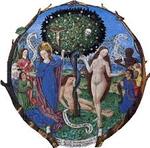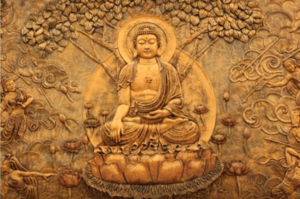Table of Contents
My Notes For Maps Of Meaning (2017) – Jordan Peterson

The Essential Problem
Peterson starts the final lecture by reminding us of the essential problem that he has the laid out in the beginning of his lectures – that of belief systems. Precisely, what constitutes belief systems and why people are willing to engage in conflict to “maintain and expand them?”
He then takes us through an exploration of how belief systems orient us in the world and why these systems matter psychologically, and whether we can make a case for the superiority of some belief systems over others (who was right during the cold war?).
Science describes objective reality but has no bearing on our subjective reality. We cannot derive an is from an ought. There are too many pathways you can arrive to from scientific truths, you have no way of knowing which scientific truth should be most relevant without invoking your subjective interpretation. That is the postmodernist problem – there are too many facts to be able to coherently determine values. If there was an inquiry into values, assuming they are divorced from science, what would it look like?
Multiple Levels of Analysis
Jung suggested that we inhabit archetypal myths. Neuroscientific ideas echo a similar idea to that. Kant suggested that we use an a priori structure when interacting with the world. Piaget described the constraints we have in the social world, and that’s what limits the infinite number of possible interpretations of how we ought to behave. Our constraints are both biological and sociological. These ideas lay the foundations to the answer to the postmodern conundrum.
To know if one solution matches the problem of how to orient yourself in the world, you should test it. In other words, it must be functional. Maslow outlined the basic needs we need to survive. These needs differ in degree but are universal.
Piaget concluded that the set of games that are played voluntarily outcompete the set of games that are played by force. In other words, regardless of what the game is, the fact of whether it was voluntary or not is the most important factor to consider. This is a good argument against tyranny. And the same idea is pronounced in chimp hierarchies where tyrants often lose to other chimps who collude. The idea that our identity is a blank slate then, is unwarranted. We have numerous in-built constraints.
The stories of mythology have to be both memorable and useful. The main objection to deriving meaning from stories is that there are too many interpretations (same as the criticism against deriving moral values from science). But the answer to that is that the meaning from stories are derived from multiple levels of analysis outside of stories – they are derived neurologically, psychologically, and socially.
Your Belief Structure Against Chaos
When you fail at achieving a goal, such as getting another person to be attracted to you, you may feel like your entire belief structure is jeopardized. And while it’s not the best course of action to think so extremely, but it’s not irrational. If your system of values and actions fail to produce your intended outcomes, it’s not irrational to assume that there is something wrong with the system, or that you need a new one.
The existential landscape consists of order and chaos. Explored territory and unexplored territory. That’s what the structure of stories are like, and that defines your relationships with friends. They slowly reveal new parts to you. And you don’t want to be friends or in a relationship with someone who is too predictable (order) or too chaotic.
When you encounter an anomaly, you use the same neurological circuit that detects predators. That’s the dragon of chaos or the snake in the garden. But the dragon symbol is deeper, it hoards treasure. Despite its capacity to kill you – it offers you the possibility of something valuable in return.
“The thing you don’t know about is the greatest gift. Error is an infinite source of information.”
When someone you are talking to says something you don’t agree with, or that surprises you, that’s when you learn new things. If you’re constantly in a state of order, you don’t learn anything. But it’s not always easy to recover from too much chaos.
If a problem is small, but noticeable, don’t ignore it. If you’re in a relationship, you need to first notice that there is a problem, that is manifesting itself across multiple situations. Then you need to confront the person and you need to then ignore their tears, and then you’ll be able to discuss the problem. Most people don’t do that. You need to be tough to be willing to go through multiple layers of challenges before reaching a solution. But if you don’t, the problems accrue until it becomes too large.
“If you continue to be a slave, you will continue to give rise to tyrants.”
Solzhenitsyn said that a society falls apart because of the accumulation of small mistakes. If you allow yourself to be taken advantage of, you will be taken advantage of. And you will simultaneously encourage that person to take advantage of other people. The counter to that is to be articulate enough to formulate arguments, and brave enough to stand up for them. Naivety will never protect you from tyranny.
Christ and the Wealthy Man
A wealthy man complains to Christ about his troubles, and Christ’s answer was for him to leave his wealth behind and follow him. Some people interpret that as a critique of wealth, but it’s actually a critique of attachment.
A main impediment to enlightenment is attachment. This doesn’t mean you should have no wants, but that it is necessary to be willing to give up what you value most to evolve. And that’s a very difficult to do.
This point is made in the Brothers Karamazov.
Christ makes a return to the world, but the inquisitor tells Christ (while imprisoned) that the burden he put his people through was too much, that they had built a society where his teachings were watered down so that more people are able to live by them. Christ then kisses the inquisitor on the lips, and the inquisitor runs away terrified – leaving the cell door open for Christ. The story is remarkable and could be interpreted as an attack on the Catholic church (for refusing to acknowledge Christ’s arrival and letting go of control) but what makes the story even more remarkable is that the inquisitor left the door open. Dostoevsky managed to give a balanced critique of the Catholic church at one of its darkest periods.
To transform into a better individual, you should burn off your previous identity. Not being willing to do that will hinder how well you adjust to life’s demands.
Keys to Transformation
The first thing you should do is orient yourself in the world. In the game of Quidditch in Harry Potter, there are games within games. The most important game involves the snitch – a winged ball (symbol of round chaos described in Jung’s works on alchemy). The round chaos contains the initial material the world is made of. It’s made of mercury, which is interpreted as the subconscious manifesting itself in your waking life.
Harry Potter is picked to be the seeker of the snitch – an object that glimmers. What does the snitch represent? In the game Harry plays, there is a game within a meta game. If Harry catches the snitch, he wins the entire game. Peterson is trying to make the same point with regards to the game and meta-game in morality.
Too much conflict and too little conflict are both bad for relationships. If you tell someone they are a bad person, and list all the reasons for why you think that’s the case, you will probably not go very far. But avoiding conflict completely will place you in stasis. The question becomes how to operate somewhere in between those two extremes.
“Meaning is what manifests itself when you’ve oriented yourself properly and when you’ve optimized the flow of information between you and chaos.”
In other words, you want to be moving in the right direction and in a state of flow where things are neither too challenging nor too easy.
“What would it be like to be in that place all the time? That’s where intimations of paradise come from.”
It’s a way of returning to a child-like state of wonder.
The child archetype and the old wise man archetype is the same thing. The ideal is to transition from a state of childhood into a state of maturation and then return to childhood as someone who is wise and mature. The opposite of that is remaining in a childhood (example: Peter Pan).
Meaning is the perception of being in the right place. However, it can be pathologized. That’s why there’s a call to virtue in most religions. If you warp and twist the inputs and blind yourself to reality, you will not be able to orient yourself properly. You must maintain a pristine, honest relationship with the world. There is no certainty in life. But this is the best path forward. It is to try to get your act together, to avoid cynicism, and to pursue something that is meaningful to you.
The goals you set must strike a balance between order and chaos. You should do things that are slightly out of reach but still realistic to pursue. You should aim to be an entity that is self-correcting, that is constantly solving problems and developing ways to solve problems more effectively.

Accepting something means taking responsibility for it. You cannot feel responsible for something you do not accept.
“A little knowledge of death will destroy you. The only way to overcome death is the complete voluntary acceptance of it.”

The message isn’t different from this picture – which represents acceptance and transcendence. The Swastika is the reverse of the symbol on Buddha’s chest – and it’s not a coincidence. Nazi ideology is the antithesis to acceptance and transcendence.
Meaning
Meaning can be a gauge to help you know if you’re on the right track or not. If you live a life where you are constantly overwhelmed with challenges, your life will have a lot responsibility and meaning, but such a lifestyle is unsustainable in the long run. You will eventually burn out. And of course, if you have no responsibility, your life has no meaning.
The ideal is to experience just enough chaos (challenges) to be able to experience self-renewal and growth, while simultaneously having the opportunity to recover. Take on as much as you can handle while living a life you can sustain for 30 years into the future. Having that mindset is a lot better for you than the alternatives.
You don’t find meaning by asking someone to tell you how well it will work out for you. It’s your destiny to find that out. You need to act as if being is good even though there are good reasons not to. So, assuming that being is good is a leap faith. But to play this game you must be all in. And the great thing about life is that you’re already all in.
“Why not pick the best thing possible that you can do? Why not do that? Maybe you can justify your wretched existence to yourself that way. I think you could. That’s what it looks like! People find such meaning in the responsibility they adopt, it stops making them ask questions about what life is for.”
Notes of the Maps of Meaning Lectures
If you are interested in reading books about unmasking human nature, consider reading The Dichotomy of the Self, a book that explores the great psychoanalytic and philosophical ideas of our time, and what they can reveal to us about the nature of the self.
Silence is also a way of appearing mysterious when you don’t know what the heck is going on.
Hah! It’s good that you know what the heck is going on then..